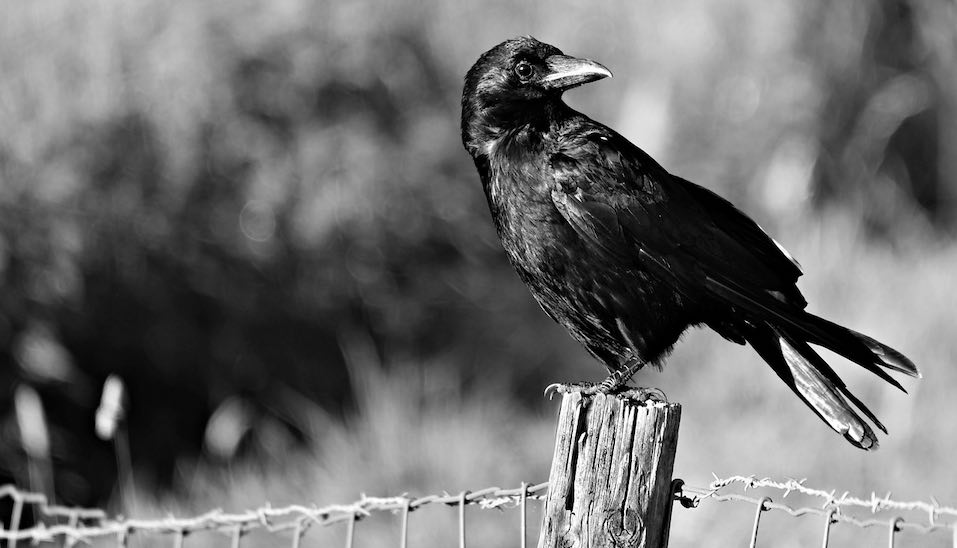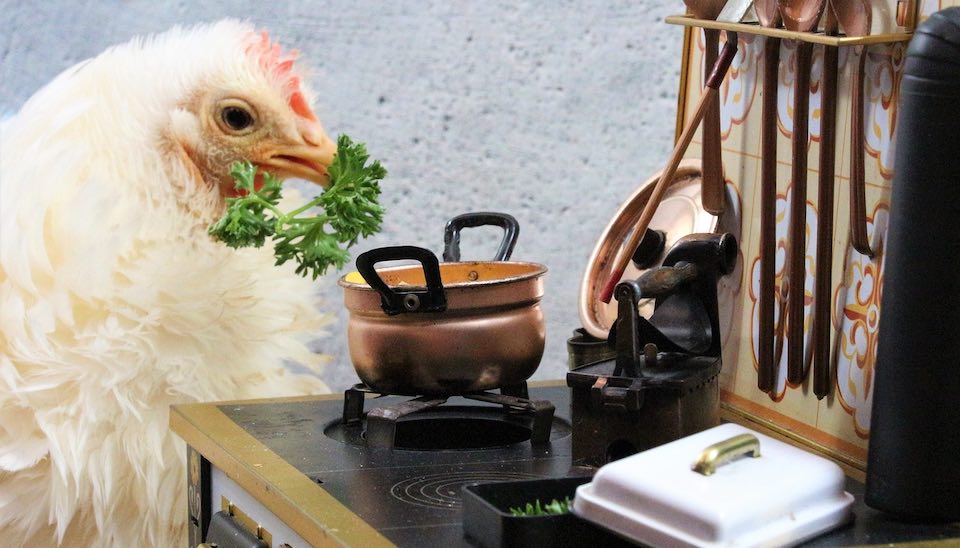Are my chickens too fat? This could be a problem
Are my chickens too fat? This could be a problem
It's important that your chickens are a healthy weight. Do they look overweight or bloated? You should ask yourself, Are my hens too fat?
As a backyard chicken keeper, ensuring the health and well-being of your flock is a top priority. One common but often overlooked issue is chicken obesity. So many loving backyard chicken keepers kill their chickens with kindness. Too many scraps and the wrong type of food can easily make chickens overweight and we see this a lot with backyard flocks.
Overweight chickens can face a range of health problems, including reduced egg production, joint issues, and a shorter lifespan. A good backyard chicken keeper pays attention to the size of their chickens. If you are concerned, keep track of your chickens' weight.
Here’s a detailed look at how you can recognize and prevent obesity in your chickens.
Signs your chicken is overweight
Identifying an overweight chicken can be tricky, as different breeds have varying body types and all the feathers can make it very difficult to tell what is going on underneath. However, there are some general signs to look for. Here are some clues that your chicken is overweight:
- Reduced Egg Production: Overweight hens often lay fewer eggs, and the eggs they do lay may be of poorer quality. Double-yolkers are also more common.
- Egg Laying Issues: Egg binding and prolapses are more common in overweight hens.
- Foot and Leg Issues: Overweight hens are more likely to suffer from bumblefoot and other leg and foot injuries. This is often related to heavy landings when descending from roosts and nesting boxes.
- Difficulty Moving: Obese chickens may have difficulty walking, running or flying. They may appear to waddle or become lethargic.
- Breathing Problems: Heavier chickens might exhibit laboured breathing, especially in hot weather.
If you think a chicken is overweight, it is important to physically assess it before you take action. In some heavily-feathered breeds, feathers can make a chicken that is a healthy weight appear fat.
Here are some tips for physically assessing your chickens' weight:
- General Appearance: Look for an overall rounded appearance. A chicken that is too fat will have a plump body with less distinction between the neck, back, and abdomen.
- Keel Bone: Gently feel the keel bone (the central breastbone running down the chicken’s chest). In a healthy chicken, you should be able to feel the keel bone with a slight covering of muscle on either side. In an overweight chicken, the keel bone will be harder to identify due to a thick layer of fat.
- Breast Muscle: Check the breast muscle. In a chicken that is too fat, the breast muscle area will feel soft and squishy rather than firm.
- Abdomen: Feel the abdomen area, located between the end of the keel bone and the vent. An excessive amount of fat will feel like a soft, padded area rather than a firmer, muscled one.
In general, chickens will remain roughly the same weight for their entire adult life. So weighing your chickens regularly is another way to determine if they are gaining weight.
Common causes of chicken obesity
Here are some of the most common causes of chicken obesity in backyard flocks:
1. Overfeeding
Providing chickens with excessive scraps and treats is a primary cause of obesity in backyard flocks, because chickens will happily gorge on these foods, eating too much. Many scraps and treats are also high in fat or calories, which means chickens are consuming more than they need.
Although individual chickens will sometimes overeat, this is uncommon when they are provided with a complete pelleted feed.
2. Inappropriate Diet
High Energy Feeds: Diets high in carbohydrates and fats, such as corn and sunflower seeds, can cause obesity. The best diet is a complete feed formulated specifically for laying hens.
Low Fiber: Diets low in fiber can contribute to overeating, as fiber helps regulate digestion and satiety. Complete pellet feeds contain ideal amounts of fibre and access to fresh, green forage can also help.
Insufficient Protein or Calcium: If a chicken feed does not contain enough of key nutrients like protein and calcium, chickens may overeat in an attempt to consume enough of the nutrient they are lacking.
Grain mixes: Scratch mixes and other grain mixes allow chickens to consume their favourite ingredients in the feed, leaving other ingredients. Typically, chickens prefer feed components such as corn and sunflower seeds, which contain more calories than other ingredients and thus cause obesity.
3. Lack of Exercise
Limited Space: Chickens confined to small spaces, such as small coops or runs, have limited opportunities to move around and exercise.
Inactivity: Without stimulation and space to forage, chickens may become inactive, contributing to weight gain.
4. Limiting Access to Feed
It seems counter-intuitive, but limited access to feed can cause obesity in some circumstances. If access to feed is provided several times a day, chickens will gorge on the feed to an unhealthy degree when it is available, rather than regulating their intake to match their needs. If they have enough opportunity, this gorging can be in excess to their needs, causing obesity. Chickens are more likely to gorge when when feed access is irregular and where access points are insufficient to allow all birds to feed at once.
For this reason, best practice is to provide unlimited access to feed and, provided the feed is a complete layer pellet, only very, very rarely will this cause chickens to become overweight.
5. Health Issues
Certain health problems can lead to reduced activity levels and weight gain in chickens, including hormonal imbalances, metabolic disorders, parasites and antibiotic use. However, this is very uncommon and most health issues cause chickens to lose weight.
6. Age
Older chickens tend to gain weight more easily than younger ones, as their metabolism slows down with age and they become less active.
7. Weather
During colder months, chickens may naturally increase their fat stores to stay warm, especially if they are not as active due to harsh weather conditions. This is one reason why you should not increase feed intake or try to boost calories in winter months to "keep chickens warm".
8. Artificial Lighting
Some chicken keepers provide artificial lighting in winter, in order to maintain high levels of egg production. However, this often leads to obesity, as chickens have more opportunity to eat and are generally less active, because they are confined to the coop during the period of artificial light, if not all the time.
9. Being High In the Pecking Order
Hens that are higher up in the pecking order have first access to everything, including feed. This means that they are more likely to become overweight, because they get more of any treats or preferred foods. If you limit access to your flock's normal feed, higher ranking hens will also get more feed because they will dominate the Feeder when it is available.
10. Genetic Factors
Some breeds of chickens are more prone to obesity due to their genetic makeup. For example, meat chicken breeds often gain weight quickly and can become obese if not managed carefully.
Why does it matter if my chicken is fat?
A fat, plump chicken may look like the ideal standard; however, by not keeping its weight in check, you are causing the hen discomfort and the distress caused by obesity-related health issues. You are also decreasing egg production in your flock!
Obesity in chickens can lead to several serious health issues:
- Joint and Mobility Issues: Excess weight puts additional strain on a chicken’s joints and can lead to arthritis and other mobility issues. Leg problems and bumblefoot are both more common in overweight hens.
- Liver Problems: Obesity can cause metabolic disorders such as fatty liver syndrome, where excess fat accumulates in the liver, impairing its function.
- Egg Laying Issues: Obesity also increases the risk of egg binding and prolapse, both of which are unpleasant, distressing and often fatal in chickens.
- Heat Stress: Overweight chickens have more trouble regulating their body temperature. They suffer particularly badly in hot weather and can often die of heat stress.
- Decreased Lifespan: Overweight chickens often have a shorter lifespan due to the increased risk of diseases and health complications associated with obesity.
How to prevent obesity in backyard chickens
Prevention is key to maintaining a healthy weight in your flock. Here are some detailed tips to help keep your chickens fit:
- Balanced Diet: Provide a balanced diet that meets the nutritional needs of your chickens plus free-access Shell Grit. Ensure the feed is homogenous, for example a pellet or mash, not a grain mix. Choose a complete layer feed that is formatted to meet all the nutritional needs of laying hens. Avoid too many scraps and treats treats, especially those high in fat and carbohydrates.
- Encourage Foraging: Allow your chickens to forage for insects and plants. This not only provides them with exercise but also supplements their diet with fibre and nutrients.
- Provide Space: Ensure your chickens have enough space to move around and exercise. A cramped coop can contribute to inactivity and weight gain. If your chickens only have a small run or coop, encourage movement and activity with Boredom Busters.
- Healthy Treats: If you give treats, opt for healthy options like greens, fruits, vegetables and insects in moderation. Treats should never be more than 10 % of the diet and shouldn't be given everyday. Avoid foods high in fat, sugar and carbohydrates, including fried foods, cakes and sweets, and white pasta, bread and rice.
- Monitor Health: Regularly check your chickens for signs of weight gain and other health issues. Keeping records can help you notice trends and make adjustments as needed.
Does my chicken need to go on a diet?
If you are feeding your chickens a complete, pelleted feed, they are unlikely to overeat, even when they have unlimited access to the feed.
If your chickens have a good diet but are still overweight, consult a vet to rule out illness. It is very uncommon for multiple birds in a flock to be overweight when fed a proper diet, an a nutritional deficiency may be the issue.
If you just have one overweight hen, there can be a couple causes. Either she
But occasionally, a hen will develop the habit of overeating. You can usually tell if a hen is overeating because her crop will be distended far more than is normal or healthy. In this case, the chicken will need Once you have ruled out any illnesses which could cause weight gain in chickens, it is time to give your chicken a new diet and exercise regime with limited treats.
At this time, it is crucial to read our article on what a healthy chicken diet looks like. This will include more protein, no scratch mix and little to no kitchen scraps.
Encouraging your hens to forage for greens is good for their diet and also provides good exercise. A free-ranging hen will have less weight problems than a caged hen.
Read Also: The Best Feed for Laying Hens




